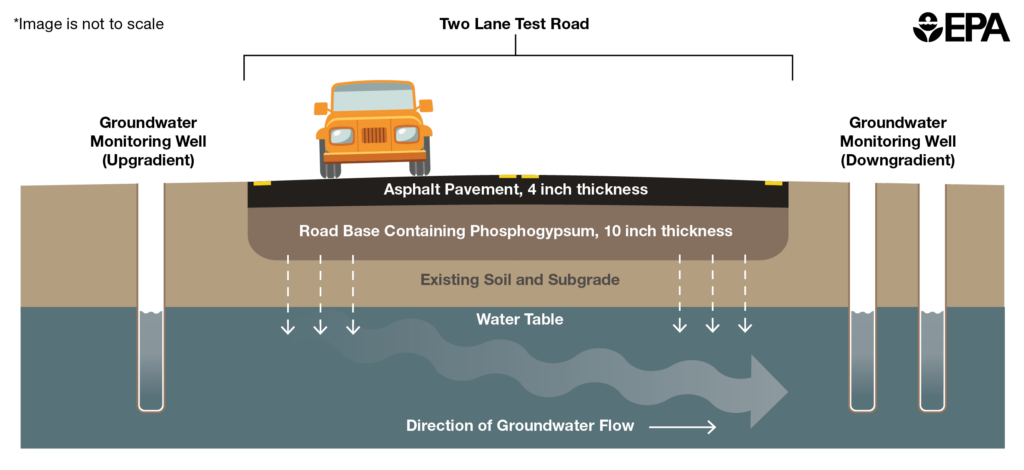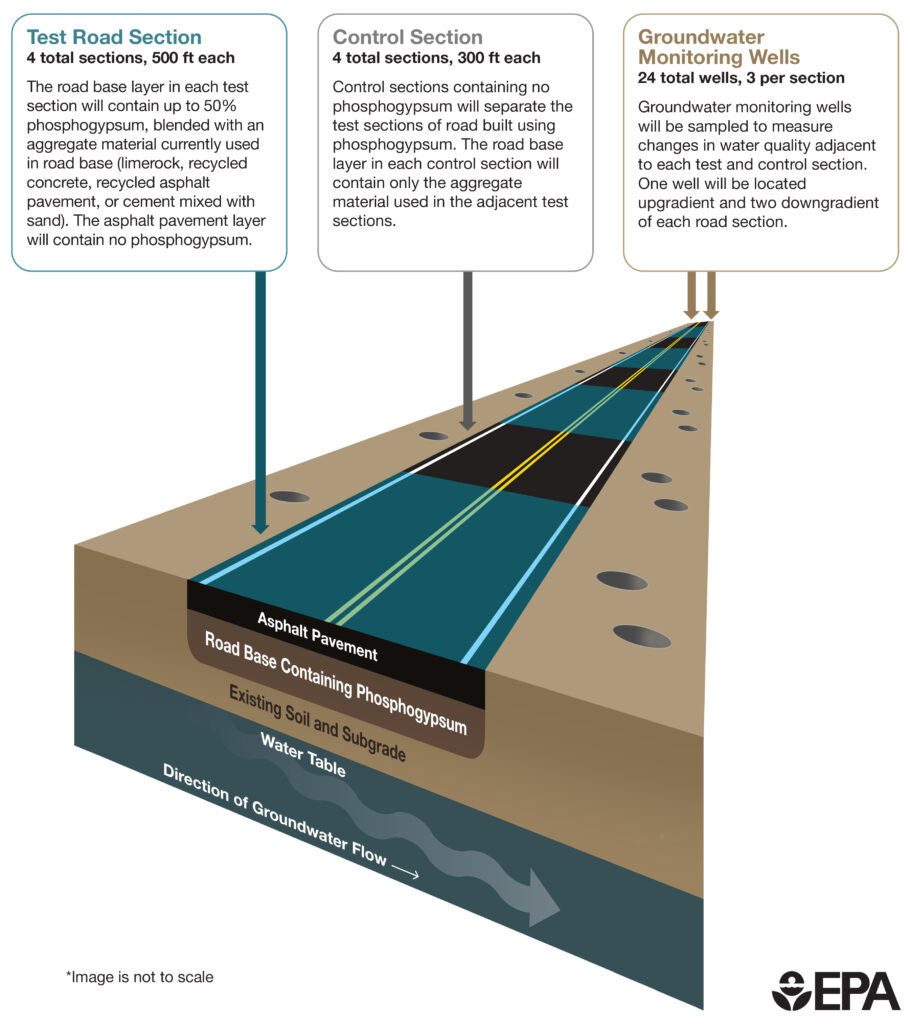The use of phosphogypsum can cause cancer, something the EPA acknowledges, but says the public won’t come in contact with it
33 seconds ago

- The EPA says keeping phosphogypsum under 4 inches of asphalt is as safe as a storage stack.
- This road will have sections with radioactive materials and sections without it.
- The Biden administration overturned a 2020 Trump approval for the use of the material in public roads.
A company in Florida has received approval from the Environmental Protection Agency (EPA) to construct a small road made from phosphogypsum. That’s a fertilizer byproduct and contains radium, which decays into radon gas. Unsurprisingly, the move has sparked quite a lot of debate.
The road will be located on the property of Mosaic Fertilizer in New Wales, Florida. Ordinarily, phosphogypsum is stored in large ‘stacks’ to limit public exposure to the toxic material. As the radium decays over time, it releases radon gas, which studies have shown can cause cancer. Even the EPA itself acknowledges the cancer risks associated with it.
Read: Florida’s Roads One Step Closer To Using Radioactive Material Thanks To New DeSantis Law
According to the agency, the two-lane test road will consist of four sections containing phosphogypsum and four control sections that don’t contain the harmful material. Each section with phosphogypsum will be 500 feet long while the control sections with each stretch 300 feet. The material will be found in a 10-inch thick road base which will be topped by 4 inches of asphalt.
The EPA says the “proposed use of phosphogypsum is as protective of human health as placement in a stack,” and says that members of the public are not expected to come into contact with it.

Mosaic Fertilizer’s proposal was open to public comment for a 30-day period from October 9, 2024, and then extended for a further 15 days. Most of the opposition came from using the material on public roads, which the EPA says was outside the scope of the project as it’s limited to a “small-scale pilot project on a private road.” The EPA approved the use of phosphogypsum in government road construction in 2020 under the Trump administration, but outgoing President Joe Biden withdrew this approval.
“[This] dramatically increases the potential for harm to our road crews and water quality,” Center for Biological Diversity attorney Ragan Whitlock told The Hill. “The EPA has bowed to political pressure from the phosphate industry and paved the way for this dangerous waste to be used in roads all over the country.” He added the EPA’s decision was “mind-boggling.”

